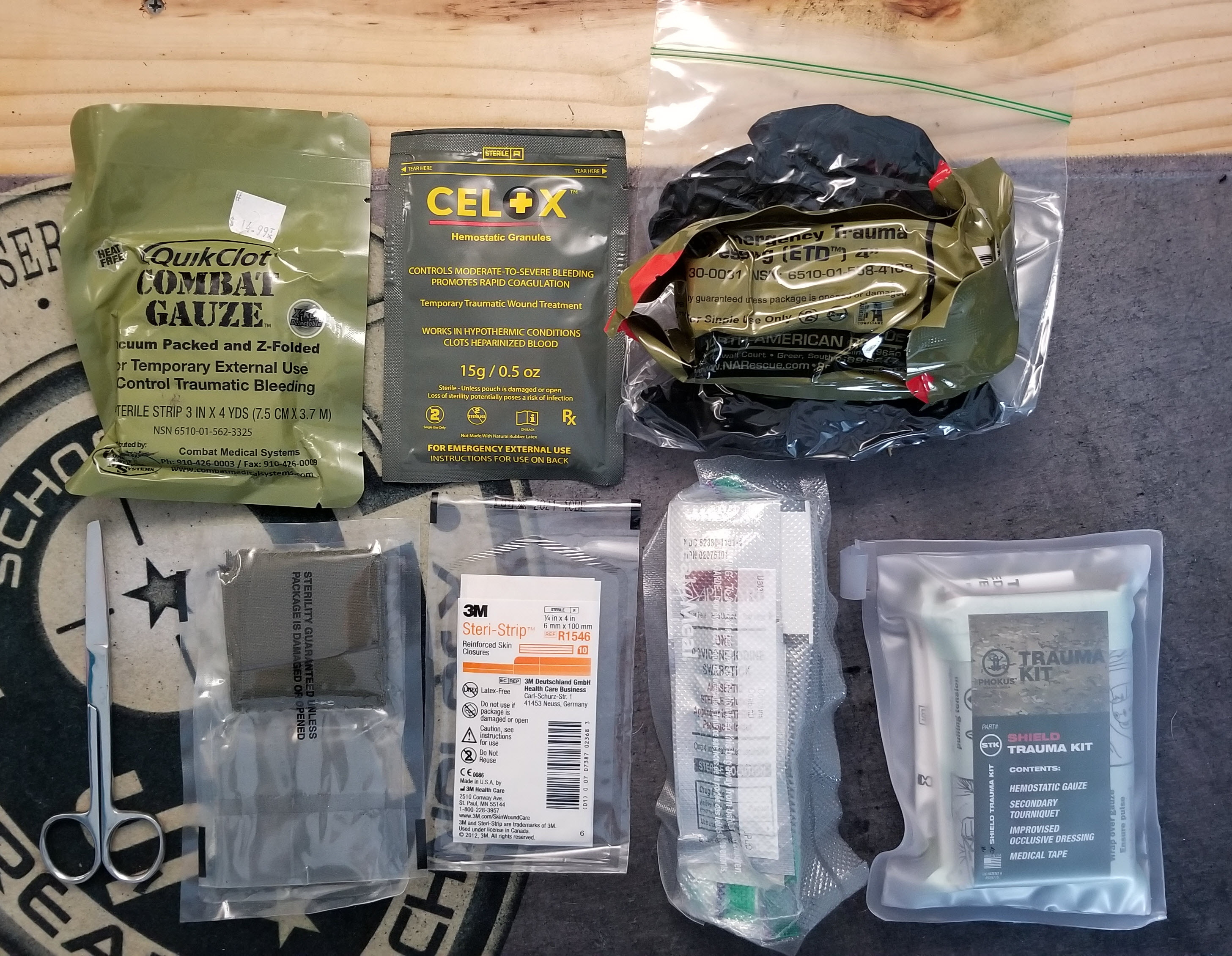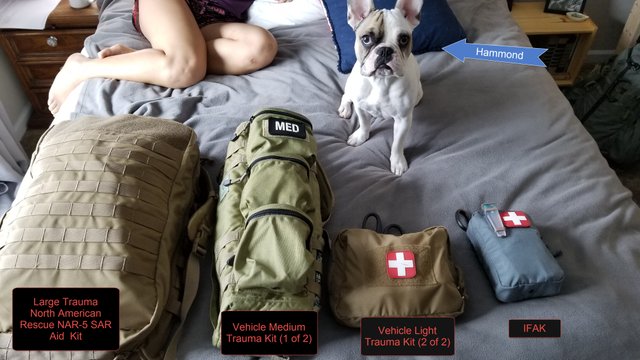Poke Holes and Plug Them
Do you carry? Yes. Good, you've taken a step to defend yourself and others.
Do you carry....an IFAK? Probably not. You should change that, for your safety and others around you. If you have the capability to make holes, you need to have the capability to plug holes.

I'm going to cover all of my medical kits, but I'm going to start off with the basic IFAK that I carry. Typically I only carry Quick Clot and a TQ on my person if I can, but If I go anywhere with a bag, I'll take the IFAK with me since I can carry more. You'll see that on the outside it has trauma shears, an indicator patch, a V-Lite (strobe or solid green for easier identification at night) and a Princeton Tec light on the back.

This is the contents of the IFAK I put together sans TQ not shown.
From left to right:
- QuickClot Combat Gauze
- Celox Clotting Agent
- 4 Pairs of Nitrile Gloves (DO NOT USE LATEX)
- NAR Emergency Trauma Dessing
- Shears
- 2 Dressing Wraps
- 3M Steri-Strip (good alternative to stitches for small cuts)
- Iodine Swabs, Alcohol Pads, NSAIDS, Iodine Pads, Bee Sting swabs, misc bandages
- Phokus Trauma kit (Hemostatic Guaze, SWAT-T Secondary TQ, Medical Tape)
- Main TQ
Another thing that could be usefull and doesn't take up much space is SuperGlue. Yes it might sound odd, but fast setting SuperGlue can be used to hold punctures closed and stop/contain non-arterial bleeding.

You can see that I have 4 medical/trauma kits in the last photo. Each has a different purpose that encompasses and expands on the smaller kit's purposes. Now I'm not saying that you need to have all of these or even two of these, but I would suggest to at least, at a minimal level have the tools to stop bleeding if you needed to. Along with these tools, you need to get trained on how to use them. You can carry more advanced tools in a vehicle kit or an active shooter kit in the hopes of assisting medical professionals or people who have the training who might also be on or near the scene. But for yourself, you should seek out proper training for utilizing whatever it is you decide to carry and implement.
This is a 4 part post with the following posts working right to left in the last photo, working my way up to the largest kit I have. Feel free to give me input whether it's based on your opinion or experience, or things YOU may carry in lieu of or also in your kit.
Some of this may seem redundant, why carry multiples of things?
2 is 1, and 1 is none.
*I AM NOT a medical professional, none of this is medical advice or training. This is merely the measures I've taken for myself and those in my life. My girlfriend is a nurse and has given me training exceeding that of basic training on the tools I have at my disposal. I am also active military.
Looks damn good man! I'm kind of jealous of your large NAR bag, haha
Haha I had to wheel and deal for it. It's not a full kit, it was only about 75-80% complete since I'm not licensed to carry some of the specific tools it comes with, so I built out a kit to better suite my needs/potential needs. The biggest pushes for me to take it into my own responsibility was SkinnyMedic, current global political climate, and oddly enough hurricanes. I live in Florida and was affected by Irma (not severely but enough that it killed my wallet). After seeing people in Texas, PR and South Florida struggle with basics and have zero prep...I decided to step my game up haha
All excellent reasons to gain knowledge and tools. Even little stuff in a "grid down scenario" can turn into much bigger problems if you can't get to an urgent care or hospital...
@loganhommel, thank you for highlighting one of the responsibilities of gun ownership.
Thanks man. Great videos btw